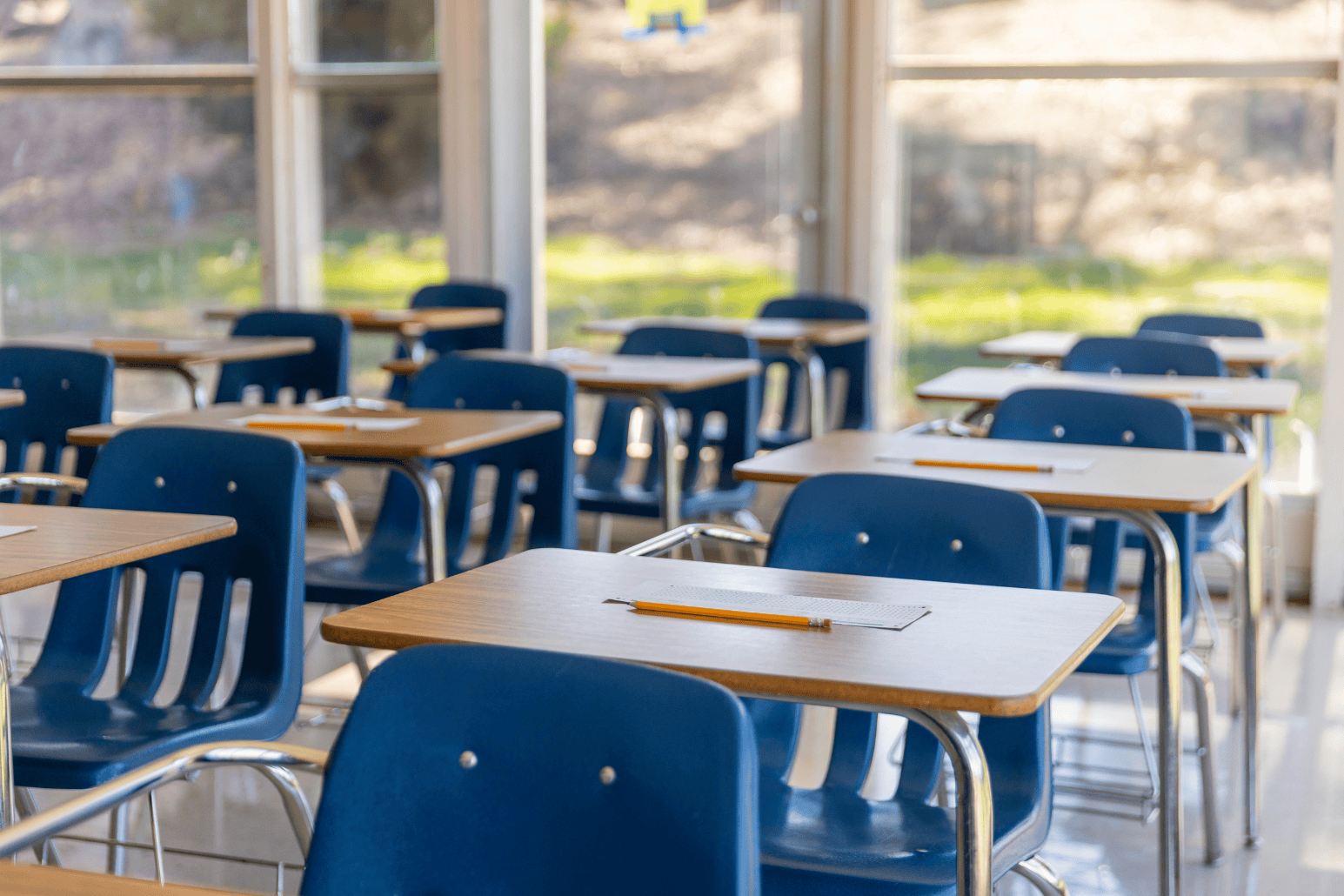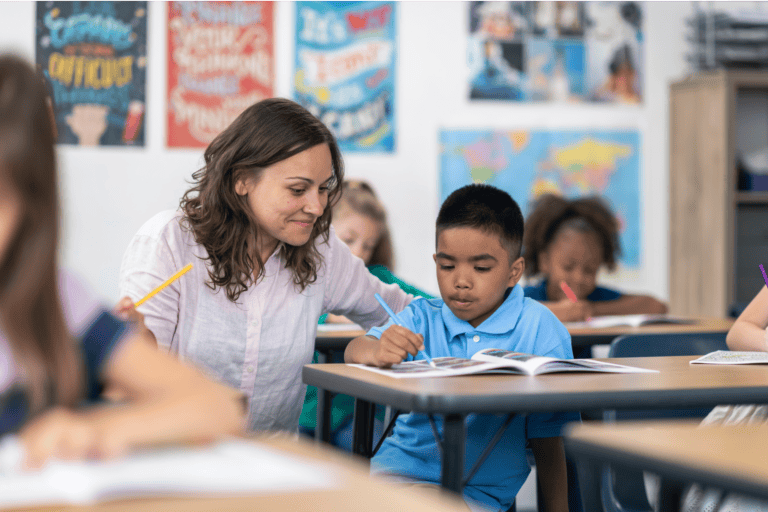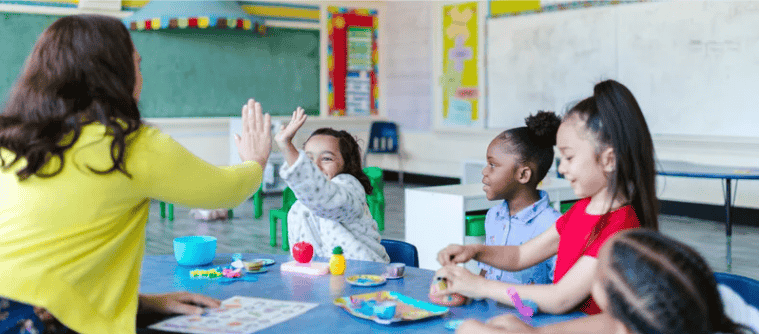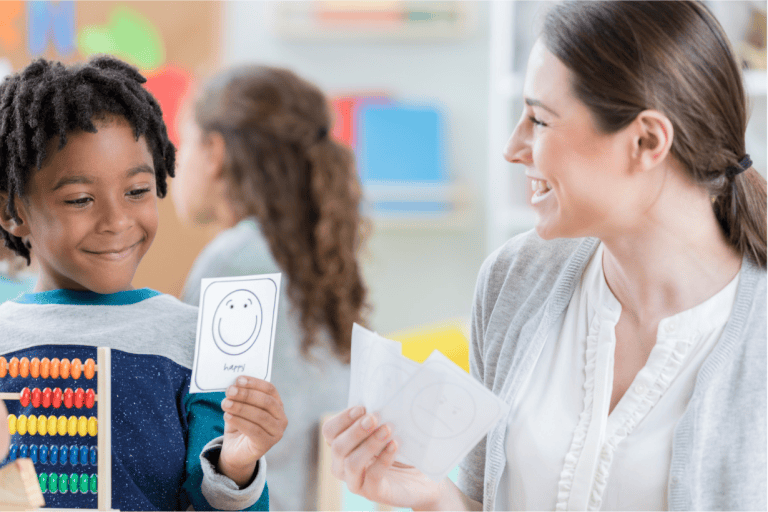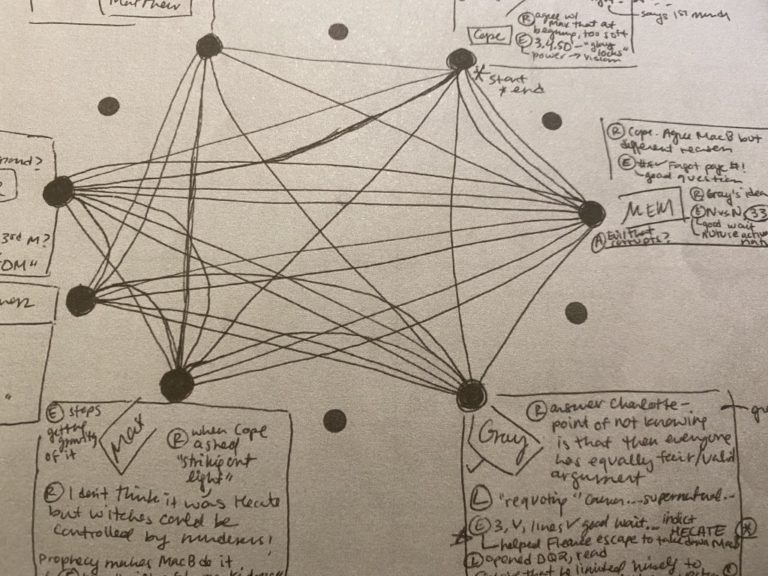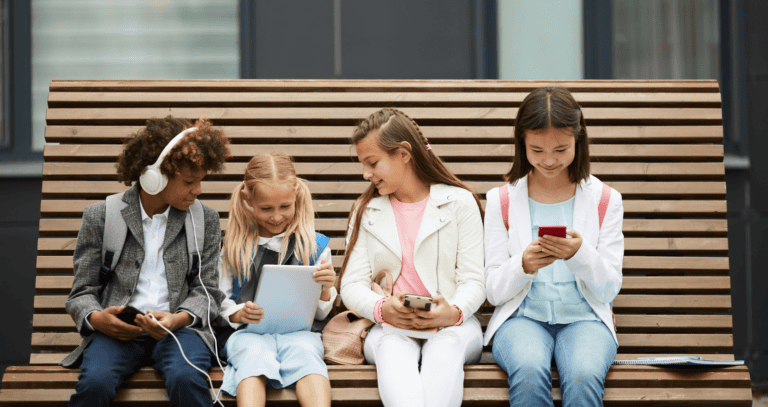Office Hours: 30 minutes with Jamie Piltch
For this week’s office hours, we spoke with Jamie Piltch. Jamie is an education journalist, policy advisor, and (soon-to-be) law student interested in the nexus of education and democracy across US history and today.
First, tell us a little bit about how you got into work as writer and policy advisor, specifically on the subject of education.
For me, this work started with the fact that both my parents are educators. I’ve had a lifelong interest in schools because I’ve been around them forever. My dad was the head of an independent school, and my mom was an English teacher and grade-level dean. It seemed like every conversation in our home was about how schools work and what students should learn in them. In college, I became interested in how schools work in civil society and democracy when I took a class on the History of American Democracy. This class made me reflect on what democracy requires from its citizens and how schools can help citizens uphold democracy. Ultimately, I wrote my senior thesis on the history of Civics education in Boston. From there, I got interested in writing about what kids should have in Civics classes in the present. I began to write and argue for schools as a tool to help young people engage with our democracy again. I drove across the country to interview people about what it means to be a good citizen – because if schools are going to teach this content well, we need to look for what we can all agree on that students should learn.

Jumping into policy was a leap for me. Working with someone to argue for better education in this country is different from writing about it from outside of the political world. The candidate that I worked with in the last election didn’t win, but it was valuable for me to hear from people on the campaign trail about their concerns and needs with schools. That’s important in the process of making schools a civic good – making schools responsive to people themselves, not just responsive to the white papers I could read. Doing so will help to make schools more democratic and, I think, give schools better tools to form the next generation of civic actors.
Often, when designing learning experiences, teachers think about students – not constituents or the broader public world. But everyone’s voice is important in formulating our approach to education.
Being student-centered is still incredibly important, partly because every generation has a different generation of what good citizenship is. We should be responsive to what students want to do in society, but we also need to think about what society needs. If we think about this moment, when democracy is more tenuous than it has been in several decades, we need to be concerned with making sure that students have a normative commitment to democracy, that they believe it’s essential and good. Polling suggests that Americans are souring on democracy as a whole, and we cannot afford for that to continue. There are ways to draw students in through student-centered teaching. Gen-Z has proven willing to get involved in activism, especially online; we need to channel what students are drawn to and good at into something they don’t think about as much. This carries through other subjects, too – I just come at it from the Civics context. And it’s important to note that, when I’m talking about “citizenship,” I believe that the purpose of schools should be to raise active, mindful, engaged civic actors no matter their citizenship status. By “citizenship,” I always mean being a member of a community or country, rather than a legal status. Most citizenship work doesn’t require legal citizenship in the country.
You’ve written productively about education’s role in civic society over the past few years. Where are you now in your thinking about how schools and educators shape our political world and future?
Unfortunately or fortunately, teachers and schools are being asked to pick up the slack for the rest of society. When Civics was at its peak in schools in the 20s and 30s, we had a robust civil society where students could learn about civic life in different ways outside of school. But they also had up to six classes in Civics across the schooling years. Today, most people would agree that Civics education is limited and opportunities to engage with Civics outside of school are limited, especially because of growing economic inequality. That means it’s almost entirely up to schools, and on some level individual teachers, because in so many places, Civics doesn’t get the resources and class time needed to do it well. In an ideal world, Civics would be taught at the very least once in each school level (elementary school, middle school, high school). That’s not the case in most places, especially at the elementary and middle levels. In many places, students don’t hear anything about Civics until late high school. So then what can the individual teacher do? How can we make sure schools are living up to a civic mission?
Social Studies classrooms matter enormously here. History classes can have a present day tie-in if done well. There are really robust debates in civil society, like the conversation around free speech, that most young people can engage with effectively and meaningfully. Teachers, especially at independent schools or schools with freedoms in curriculum, should do that. Ideally, we’d have a separate class doing this civically-minded, present-day work, but that’s not the case in most places. Science classrooms can be great places to talk about climate citizenship, which will impact students’ lives more than even teachers’ lives. How can we think about and teach climate change from science and policy perspectives? Even as we’re so far from the ideal, in my mind, there are ways that teachers can use their skills to make sure that we’re helping students still become thoughtful and engaged citizens.
I’d add two more things – one being that extracurricular activities are essential. Student government, when it’s actually empowered, and/or in public school having a school board member that’s a student are really effective for making students understand how change happens. The same applies to a student newspaper; what an amazing way to learn about free speech and opinion and argument. A truly empowered student government or newspaper is challenging for administrators because having them means being comfortable saying that students not only will be but also are now a citizen with a voice. If you say “we want to create engaged citizens,” but then you send students the idea that their voices don’t matter, that creates a civic disjuncture and risks making a lot of students really disengaged. Thinking about the school as a whole as a source of democracy is essential.
The last thing, which is hard for a single teacher or school to address, is that our growing societal obsession with merit and meritocracy–a system that privileges and rewards a narrow definition of “talent” above all else–is deeply destructive to inculcating norms of democratic practice. If you tell students that your test score or college acceptance is what determines their worth to their community, it’s hard to also say, each of you has an equal, intrinsic value as a member of our democracy. . That’s especially important in private schools, which don’t educate a representative group of students. Students at independent schools will likely end up with disproportionate shares of wealth because in the United States, it’s very hard to leave the economic band that you’re born into. s. If private schools want to try to serve the public good, they have to think very hard about being democratically-minded, rather than purportedly merit-driven, institutions.
I worked as a student tour guide for the Harvard College Office of Admissions. We would often tell prospective applicants that 80 percent of people who applied could do the work there. If that’s true, you should be humble about your acceptance or lack of acceptance. There’s an enormous degree of randomness and luck to students gaining admission to privileged spaces, down to who your parents are and where you live. I’d argue that schools should encourage students not to think that an acceptance to a certain school is the measure of their worth to society. I do think that can lead to counterproductive beliefs about your peer-to-peer standing with other people. That’s bad citizenship, and it’s bad for democracy. A lot of people have no faith in the elites in this country. Rightfully, there’s a perception that they’ve been self-serving and self-dealing. I don’t know that any individual private school can change this problem, and there’s a robust conversation around that, but many teachers I know have the opinion that it’s their job to help students be humble and generous and not believe that they’re special and superior. That matters. Maybe being a good citizen is an effective framework for helping students to see that. It’s not enough to say “don’t do this”; we need to help give students identity and meaning apart from status, and I think teaching about citizenship and civic engagement is a phenomenal way to do that.
One part of this work is social-emotional learning, but we also can’t focus on individual social adaptability in a way that encourages students to use tools exclusively for their own benefit. The goal should be helping channel their skills into society. Empathy matters, but empathy for whom, and why? If we think about the goal of REAL, it’s really to be able to engage across differences. Empathy helps us to do that. We have a very diverse society, more so than most classrooms because of how segregated our school system is,. ut classrooms are still a good place to start developing empathy across difference, because they’re often more diverse than we can even see in terms of identity, belief, background. We should encourage students to develop empathy for their peers, both because having empathetic students makes a better community and class and because ideally that empathy will persist when they go out into the world, too. There’s been an increased polarization in this country recently, along a number of lines, and although that is driven by larger political trends, as we think about what students need to navigate that reality, the ability to talk, listen, and create change across differences is so important.
Local politics is where you see a lot of that civic opportunity – when people notice school building infrastructure falling apart or underfunded community centers and know someone needs to turn things around. That’s a great place to work on finding common ground, a great place for young people to learn political practice. You’re going to learn a lot from people down the block. Public schools have a head start in this because they’re inherently a part of our democratic systems , so students can begin by advocating for changes within their own school communities. Doing so will expose them to an enormous number of stakeholders and decision-makers. Independent schools do not depend on government policy as much, and so there are fewer built-in ways for students to learn about civil society at large. Teachers and school leaders at independent schools should be putting extra thought into having their students engage with public life then. If you’re an enclave from the rest of society and don’t have to worry about public taxes, then how do you make your students concerned with the community around you? How do you make sure that people engage with someone who doesn’t go to a school like yours? To have young people meet other young people and work together as equals to fix a problem in the community is a start.
Much of this moment’s public debate about civics and schools surrounds the content of what is taught — critical race theory, the 1619 Project, and even (still) human sexuality — but at REAL, we’re even more focused on the skills of discourse that students use to explore the curriculum (both what is and what isn’t formally assigned). How can schools prepare students to be skilled citizens – readers, writers, disagreers, critics – particularly in the political world?
I think I don’t know as much about how to teach as teachers do, and so I’m wary of saying what anyone should do in the classroom. But there are a few principles that have come up in my conversations with educators that I think are worth sharing.
The first is that content does still matter. When we think about what it means to be a good citizen, the vast majority of people would say, despite the disingenuous fervor being created around critical race theory right now, that having an understanding of race and racism in America is important . If someone has developed good listening skills, they can respond to the best of their ability when talking with people of different backgrounds. But if a student or citizen is totally oblivious to the structural history of slavery and Jim Crow and redlining and how that history persists today, or the history of immigration and anti-immigrant sentiment in Amerrica, they will have serious deficits in their ability to meaningfully engage across lines of difference with anyone. You could go down the line on a number of issues and how they related to building bridges across differences. If you’re someone who grows up in an urban community and has no knowledge of the economic decline in rural communities, or vice versa, listening and dialogue skills alone will not be enough to fully engage across that line of difference. The skills are absolutely essential, but the content is, too. We don’t want passive people who just accept things – we need people who are comfortable speaking up and trying to effect change. But it’s essential to have to have some knowledge of institutions to know how that change works from a local to a broad level. What knowledge will actually make these skills actionable for young people? That’s a great question for teachers to apply when considering what content is vital for democracy.
Thinking about one’s own students’ deficits is also critical. In an affluent independent school, one deficit for most students likely would be limited exposure to injustice. It’s incumbent upon teachers to address those deficits that their students have. If it doesn’t happen now, it’s probably never going to happen for a lot of people.
I would also say to work on students’ skills, mindsets, and behaviors, because they’re all interrelated. We can give students great skills, but if they don’t have a civic mindset, they can just use those skills of community engagement to enrich themselves. That’s unfortunately the case at many schools right now. Relatedly, skills become behaviors only through regular practice, and so applying pro-democracy skills regularly can help to build community-centric behaviors. Schools, for example, should help students by registering them to vote when they’re of age, but they should also develop the behavior of voting by leading students to learn about local and national elections, and doing mock elections for local elections. Every school does the presidential mock election, but they rarely do the local ones. Helping students practice that skill of learning about the issues, the institutions, and how to find information is needed.
Finally, teachers and school leaders can’t shy away from difficult conversations. Students are going to talk about complicated political issues no matter what. Maybe these conversations happen in the lunch room or on TikTok, spaces without adults present. Maybe they happen at home, but if students’ parents are the only adults they hear from about important civic issues, they’re likely only getting one narrative. We have to help students talk about what to do about guns, for example. This is a serious issue for people on all sides. Helping students understand the arguments that surround that, not just the argument they hear in the world around them, can make a difference. There are really great organizations that are great compliments for teachers who use something like REAL that are civically minded. Illinois Civics and StreetLaw are great content and professional development resources for difficult conversations around civic life and democracy. That’d be a great addition to skill-based learning.
This idea of prioritizing collaboration, rather than producing private gain using the skills we develop in school but instead prioritizing collaboration, is so vital but difficult to accomplish. It seems like some of these challenging civic conversations could be a good place to bring about some of that humbling and collaboration.
Winning isn’t the goal of a civic education, even though there’s winning in politics. The process of how someone participates really matters, not just the result, and that’s especially true in civics and democracy. Playing by the rules is important – rigging an election or falsely claiming that the election has been rigged historically has not within the rules of American democracy, and we’ve now seen the consequences when a rule as important as those is broken. On a personal level, then, teaching students to be humble about success and failure and other people’s needs and ideas is critical. I think that civics is a hard subject for a lot of people because it cannot be graded in a normal way that accords with objective achievement. In public schools, because of testing, we’re forced to focus intensely on student outcomes in a particular set of subjects. In private schools, parents demand an often intense measure of a student’s competence. I would challenge students, parents, and teachers to think about how being a good citizen cannot be graded or captured in a salary number or a college acceptance. How do we be comfortable with this thing that you can’t really be the best at, get into the top college for? This is a different spirit than the one that has run through our society in recent decades.
It’s also hard for kids to understand the idea of a skill that doesn’t have a tangible reward.
That’s why it’s essential to start younger and have kids get comfortable with the idea of ungradeable but essential skills as early as possible. If you get to 16 and you’ve never thought about civic obligation and action, it’d make sense that this drastically different skill and subject would be uncomfortable.
As it emerges from a period of online learning, the education world is buzzing with questions of what the future of education will look like. Do you have any predictions? What are the benefits and drawbacks, in your eyes, of pursuing and expanding commitments to digital learning platforms and services especially as, as you’ve noted, kids engage well with civic discourse when it happens online?
I can’t give predictions – but I can give hopes! My first hope is that, since this pandemic has laid bare the deep inequities in our society and education system, there will be a recognition of that fact from a broad variety of actors. I hope that we’ll begin to address those inequities by funding public schools more equally. My second hope is less about the pandemic and more about politics, and it’s that people have seen our democracy’s dire straits and actually want to do something about it. Ideally, part of helping fix our democracy will be to reorient our schools toward helping our students be part of the change. Finally, though teachers were sort of thrown off the deep end this year, I hope that it’ll make it easier to meet students where their lives happen and more easily engage with them. Helping students productively use that online platform is crucial. Before the pandemic, students were online and teachers weren’t; now, I think people should be asking how teachers can be a helpful part of that online life. Teachers weren’t equipped to do that before, but the pandemic likely helped a lot of teachers with their digital skills. Maybe teachers can start using the tools they’ve learned to help students learn how to engage more civically and civilly online and off of it.
